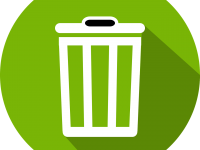What Is a Discharge of Debt in Bankruptcy?
In the context of a Chapter 7 filing, a bankruptcy discharge is an injunction against the collection of any debt that was a personal liability to you. This means that the debt can no longer be collected on. At the end of the bankruptcy process, the court will notify you of the discharge of the bankruptcy, meaning that the bankruptcy process is basically over and all the debts that were included in your bankruptcy can no longer be collected. Chapter 7 bankruptcy is the most common consumer bankruptcy used to eliminate credit card debt and other types of unsecured debt. The discharge point of the bankruptcy is what you are shooting for in the whole process. The whole point of a bankruptcy is to get the debts discharged so that you can move on with your life without the burdens of the debt that you were unable to manage in the past.
Once your debt is discharged and the bankruptcy is complete, you will no longer need bankruptcy protection because discharged debt is no longer able to be collected on. Bankruptcy protection throughout the bankruptcy process provides an automatic stay to stop collections activities through the time that you are going through the bankruptcy process. In our local court systems in the Inland Empire (Riverside and San Bernardino Counties), Los Angeles, or Orange County courts systems, the bankruptcy process for a Chapter 7 is currently taking about 4 to 5 months to complete all the way to the discharge of your debts. Most of this is time that the court will take to process your paperwork, leading to discharge of your debts down the line at the end of the process.
If you need more information on Chapter 7 bankruptcy, please contact us at (855) 257-7671 to ask questions or schedule an appointment to meet with an attorney at any of our locations.

